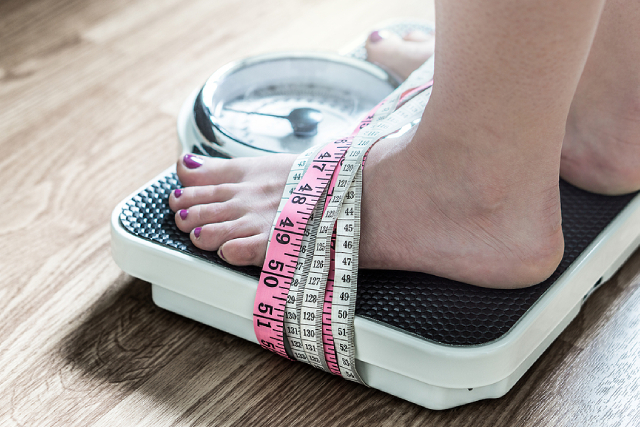
How Stress Contributes to Weight Gain and Tips to Manage It
In today’s fast-paced world, stress has become an almost unavoidable part of daily life. While short-term stress can sometimes be beneficial by improving focus and performance, chronic stress can have detrimental effects on health, including weight gain.
Understanding the connection between stress and weight gain is crucial for developing effective strategies to manage both. This article explores the intricate relationship between stress and weight gain and offers practical tips for managing stress to maintain a healthy weight.
The Biological Link Between Stress and Weight Gain
1. The Role of Cortisol
When you experience stress, your body releases cortisol, which prepares your body to react to perceived threats. However, chronic stress leads to prolonged elevated cortisol levels, which can contribute to weight gain in several ways:
- Increased Appetite: Cortisol can increase appetite and cravings for high-calorie, high-fat, and sugary foods. This response is believed to be an evolutionary mechanism to store energy for future stress responses.
- Metabolism Changes: Chronic stress can alter your metabolism, making it more challenging to lose weight. Cortisol can reduce the body’s sensitivity to insulin, leading to higher blood sugar levels and potentially increasing fat storage.
Emotional Eating
Stress often triggers emotional eating, a coping mechanism where individuals consume food for comfort rather than hunger. Emotional eating typically involves unhealthy food choices, such as sugary snacks and fast food, which contribute to weight gain. Furthermore, emotional eating can create a cycle of stress and overeating, where weight gain leads to additional stress, perpetuating the problem.
Strategies for Managing Stress and Preventing Weight Gain
1. Regular Physical Activity
Exercise is one of the most effective ways to combat stress. Physical activity reduces cortisol levels, releases endorphins (the body’s natural mood lifters), and improves overall mood.
Aim for at least 30 minutes of moderate exercise, such as brisk walking, cycling, or yoga, most days of the week. Not only does exercise help manage stress, but it also supports weight loss and maintenance by burning calories and improving metabolic health.
2. Healthy Eating Habits
Adopting healthy eating habits can help counteract the effects of stress on weight gain. Focus on a balanced diet rich in whole foods, including fruits, vegetables, lean proteins, and whole grains. These foods provide essential nutrients that support overall health and help regulate mood.
Additionally, practising mindful eating—paying full attention to the eating experience and recognising hunger and satiety cues—can prevent overeating and promote healthier food choices.
3. Adequate Sleep
Lack of sleep is a significant stressor that can exacerbate weight gain. Chronic sleep deprivation increases levels of ghrelin and decreases levels of leptin, consequently stimulating your appetite. Aim for 7-9 hours of quality sleep per night to help regulate these hormones and reduce stress levels.
Establishing a regular sleep routine and creating a restful sleep environment can improve sleep quality.
4. Stress Management Techniques
Incorporating stress management techniques into your weight loss treatment program can help reduce cortisol levels and mitigate the impact of stress on weight. Effective strategies include:
- Meditation and Mindfulness: Practices like meditation, deep breathing, and progressive muscle relaxation can calm the mind and reduce stress.
- Time Management: Organising your time effectively and setting realistic goals can reduce feelings of being overwhelmed and stressed.
- Social Support: Connecting with friends and family provides emotional support and can help buffer against stress. Sharing your concerns and experiences with loved ones can lighten the emotional load.
5. Professional Help
Sometimes, managing stress and its impact on weight may require professional assistance. Consulting with a therapist or counsellor can provide you with coping strategies and support.
Additionally, a registered dietitian can help develop a nutrition plan tailored to your needs, addressing both stress management and weight control.
6. Limiting Caffeine and Alcohol
While caffeine and alcohol might seem like temporary fixes for stress, they can actually exacerbate it. Caffeine can increase cortisol production, while alcohol can disrupt sleep and interfere with your ability to cope with stress. Limiting the intake of these substances can help maintain a more balanced and less stressed state.
Conclusion
The relationship between stress and weight gain involves biological, emotional, and behavioural factors. Chronic stress elevates cortisol levels, increases appetite, and leads to unhealthy eating habits, all contributing to weight gain. However, it is possible to mitigate the effects of stress on weight by adopting a holistic approach that includes regular physical activity, healthy eating, adequate sleep, and effective stress management techniques.
Slim Couture is committed to supporting you through your weight loss journey, combining TCM and weight loss principles to help you achieve your weight goals.






